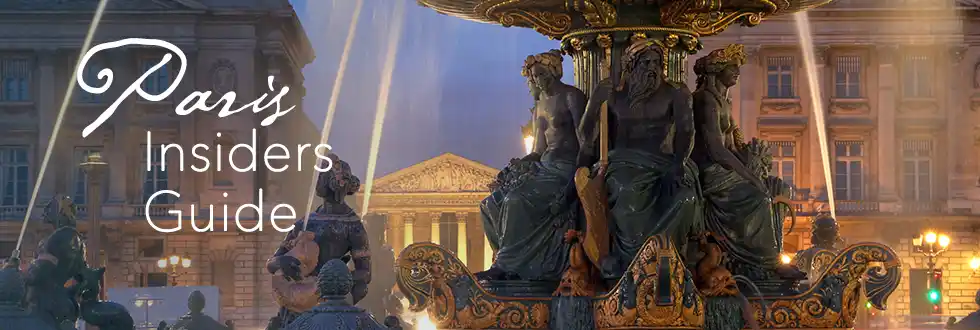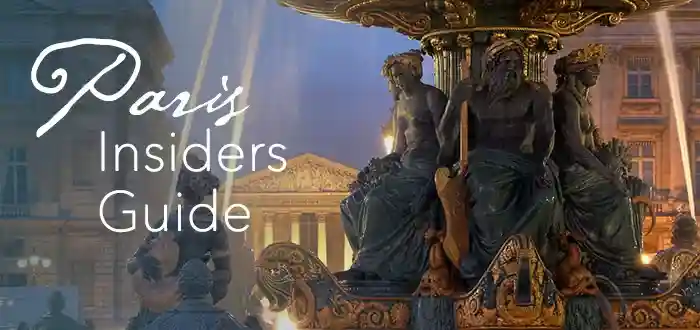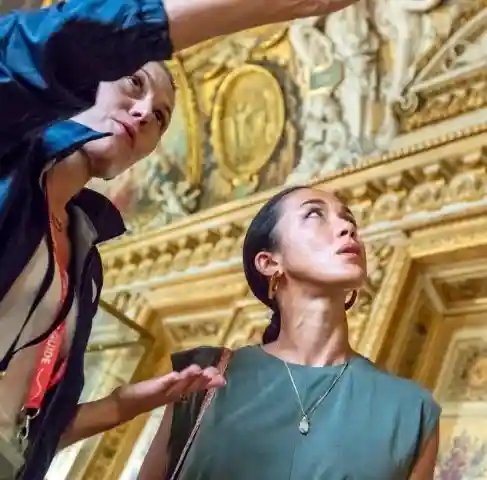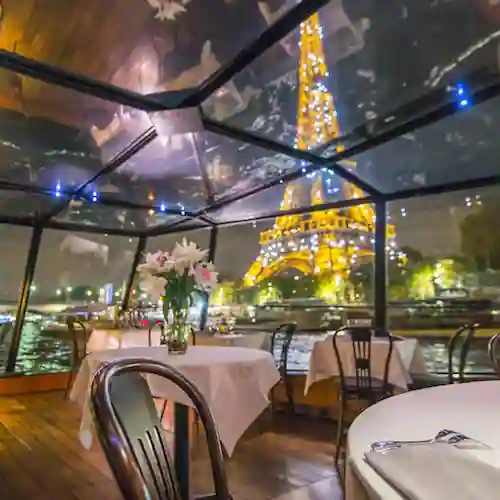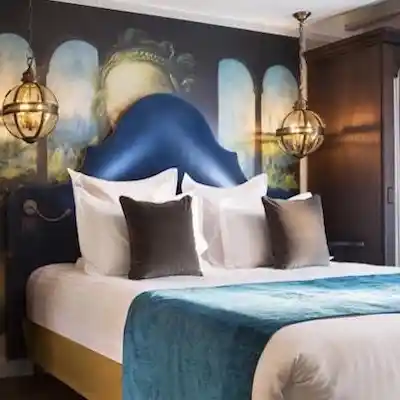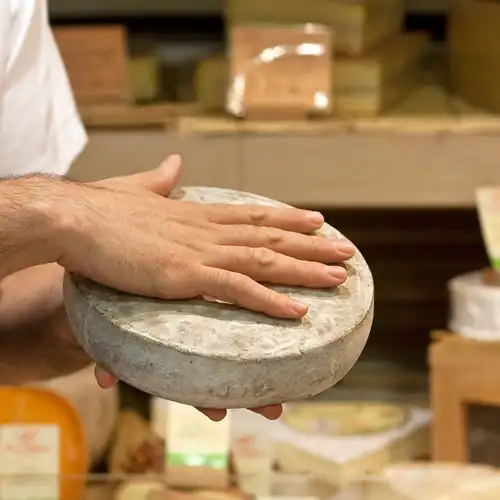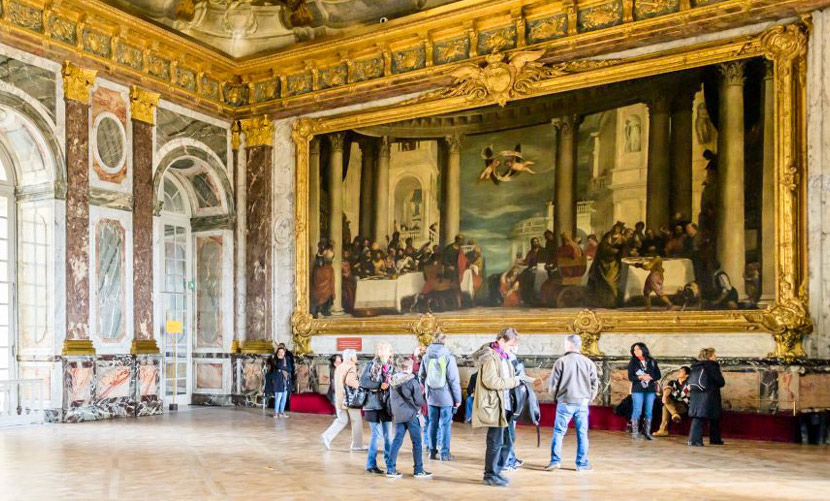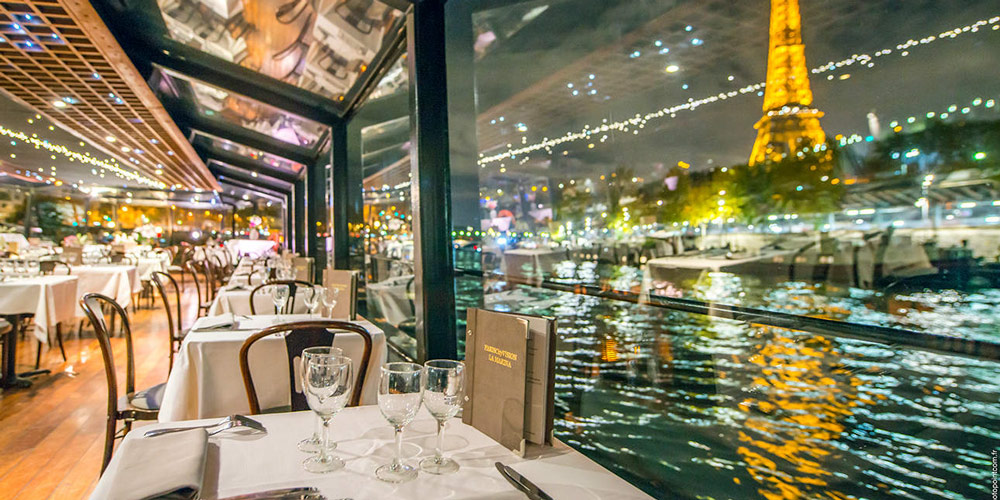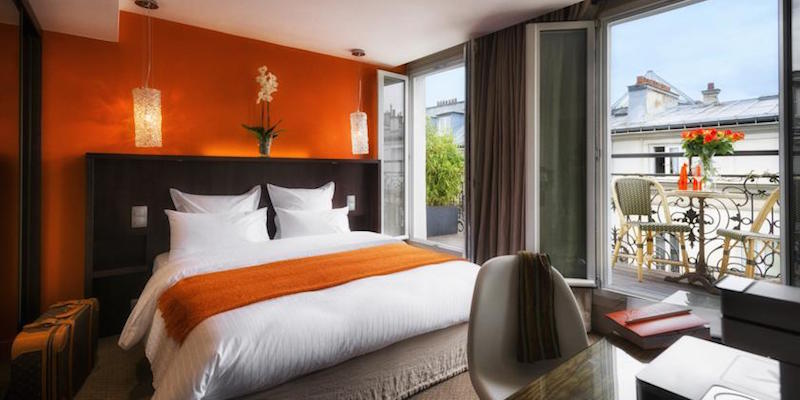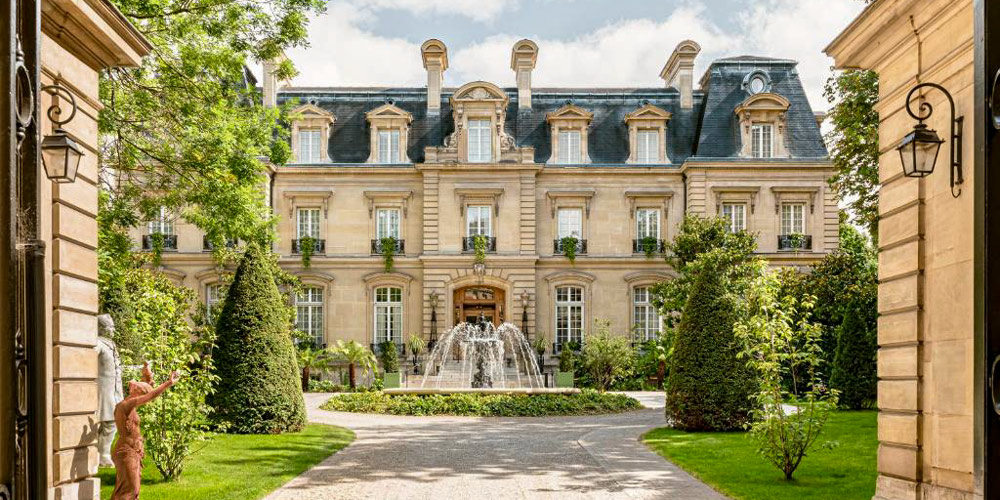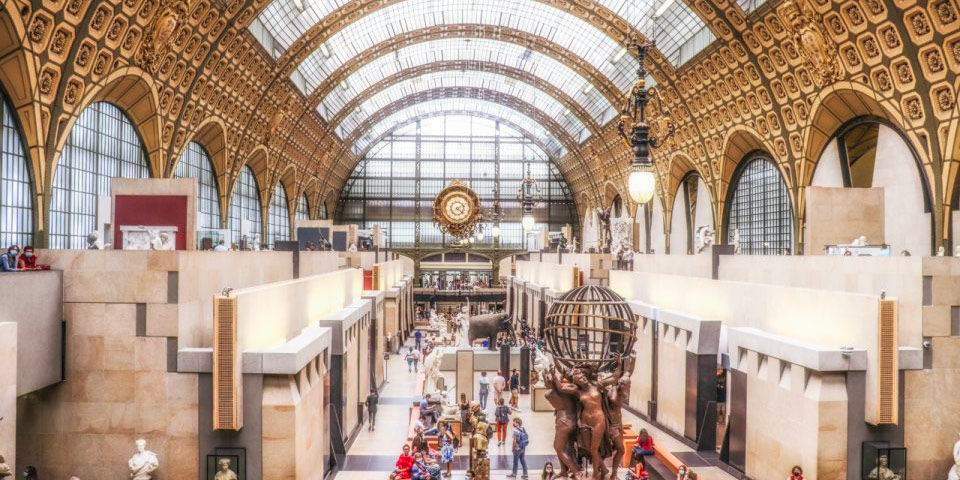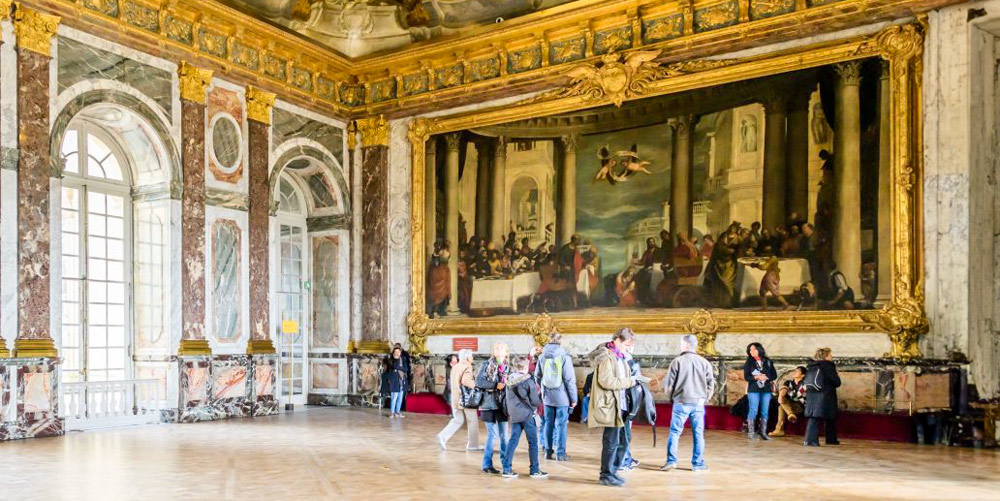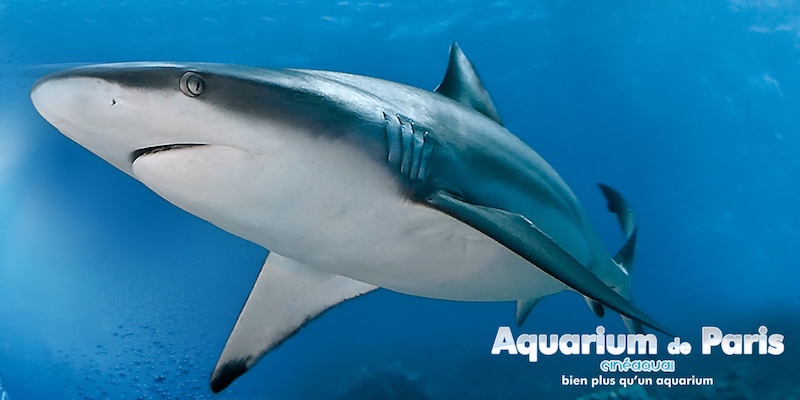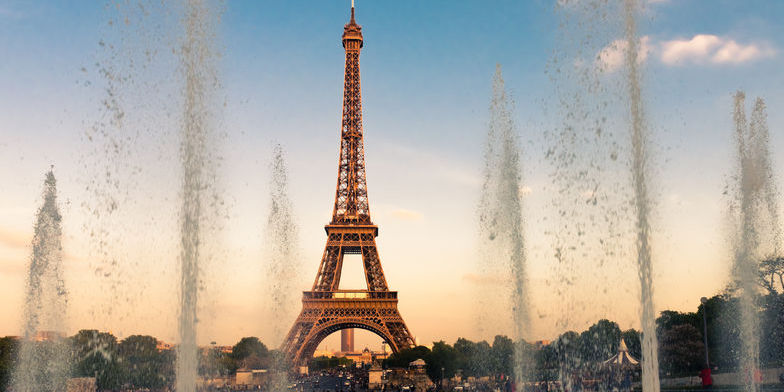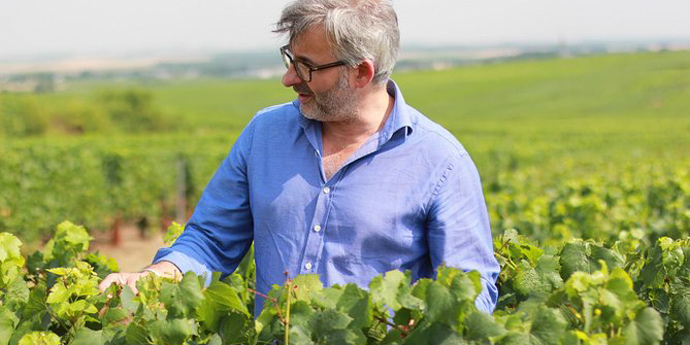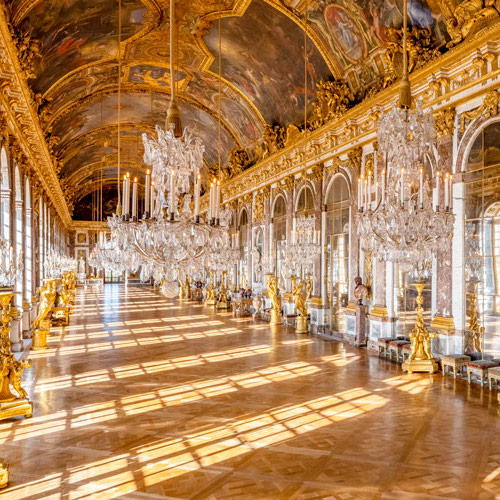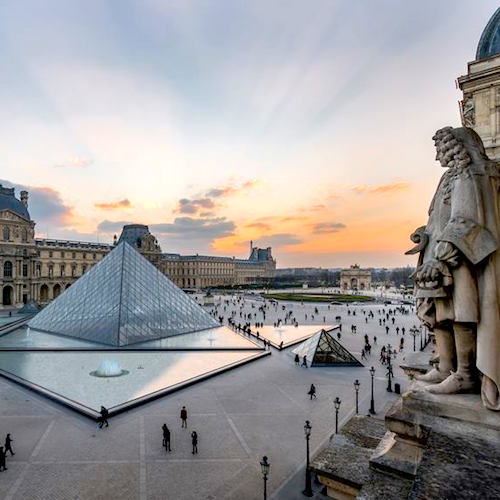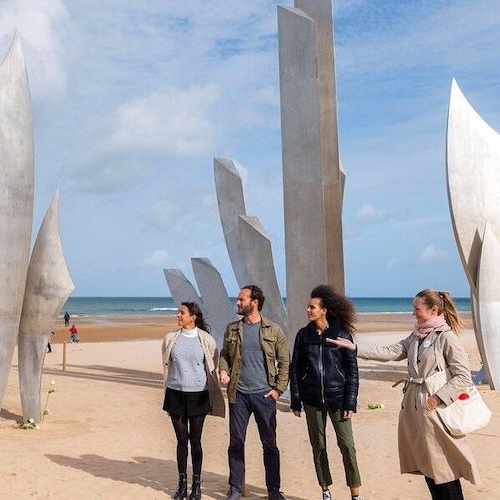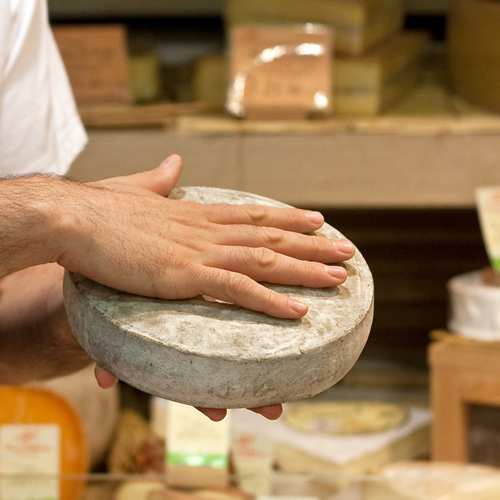The Elegant 16th Arrondissement – Culture, Charm & Luxury
We love strolling among the streets, the shops, and the parks of the 16th Arrondissement. This is where sophistication meets serenity in Paris. Known for its wide, leafy avenues, elegant architecture, and quiet charm, this neighborhood offers a refined escape from the city's hustle and bustle. Filled with upscale residential neighborhoods such as Passy, Auteuil and Trocadero, you also find iconic landmarks like the Trocadero and the Bois de Boulogne. From world-class museums to upscale dining, this arrondissement embodies a timeless elegance that Paris is known for.
![]()
Our Top-Rated Paris Experiences
18 Great Things About the 16th Arrondissement
1. The View of the Eiffel Tower
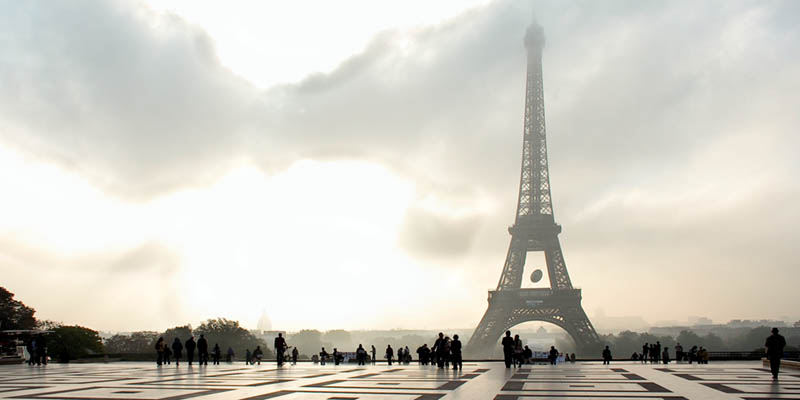 The view from Trocadero on a foggy morning, photo by Mark Craft
The view from Trocadero on a foggy morning, photo by Mark Craft
We've said it before — the best place to view the Eiffel Tower is from across the river, in the 16th Arrondissement, from the plaza at Trocadero. From here the Tower seems to float on the horizon. The best time to go is early in the morning, before the crowds arrive, as the sun rises behind the tower.
![]()
Discover What's On When You're Here...
• January... |
• February... |
• March... |
• April... |
• May... |
• June... |
• July... |
• August... |
• September... |
• October... |
• November... |
• December... |
Discover What's On When You're Here
• January...
|
• February... |
• March... |
|---|---|---|
• April... |
• May... |
• June... |
• July... |
• August... |
• September... |
• October... |
• November... |
• December... |
2. Shangri-La Paris
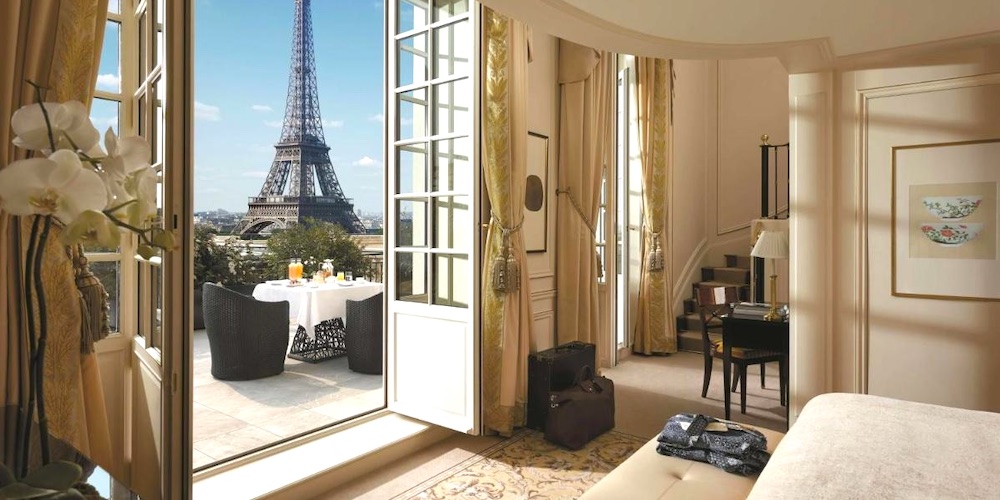 Room with a view at the Shangri-La Paris
Room with a view at the Shangri-La Paris
Up there in the stratosphere of luxury hotels is the Shangri-La Paris, one of the Palace hotels of France. This high-end hotel has everything, including views of the Eiffel Tower and 37 rooms with private terraces. Located in the luxe area near the 8th, the service here is exceptional. In fact, everything is exceptional! Find out what we say in our review.
3. Arc de Triomphe
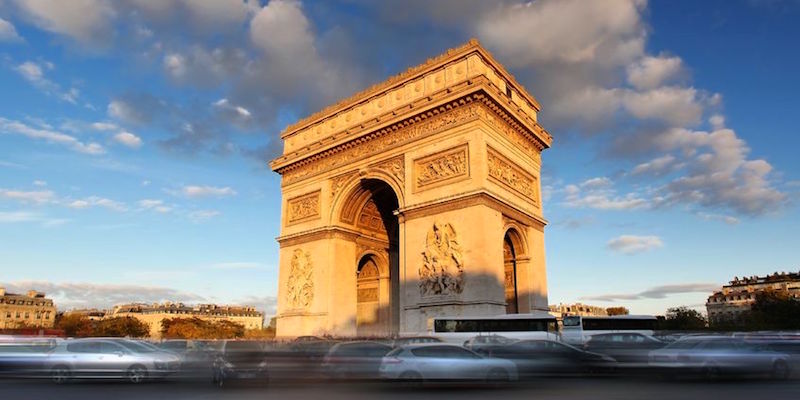 Arc de Triomphe, straddling three arrondissements
Arc de Triomphe, straddling three arrondissements
The Arc de Triomphe sits on the spot where the 16th, 17th, and 8th Arrondissements meet, so at least a bit of it is in the 16th Arrondissement. See that corner of the Arc nearest to you in the photo? That's the 16th.
![]()
|
Paris Dinner Cruises on the Seine Dine in style as you glide past the Eiffel Tower, Notre-Dame, and the Louvre on a magical Seine River cruise. Gourmet food, champagne, and Paris lit up at night – it’s unforgettable. |
|
Paris Dinner Cruises on the Seine Dine in style as you glide past the Eiffel Tower, Notre-Dame, and the Louvre on a magical Seine River cruise. Gourmet food, champagne, and Paris lit up at night – it’s unforgettable. |
4. The Peninsula Hotel Paris
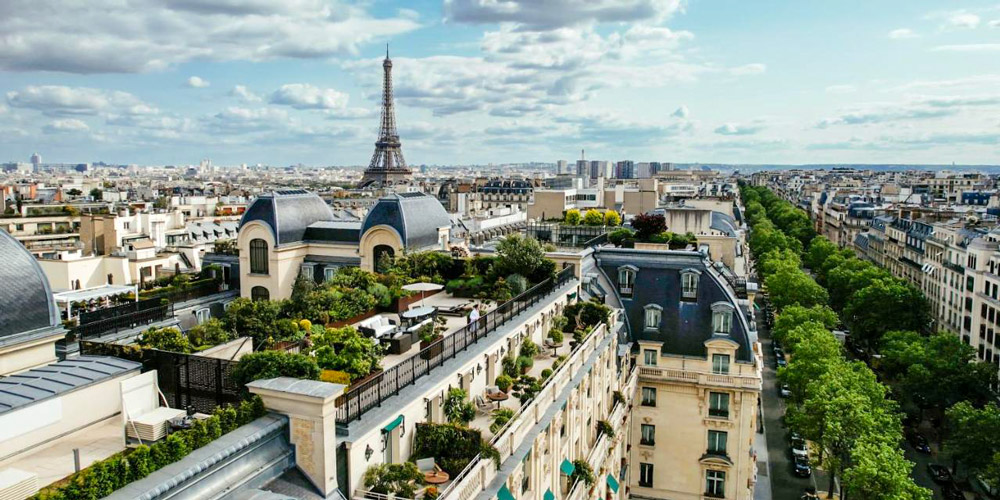 The rooftop garden & bar at the Peninsula Hotel Paris
The rooftop garden & bar at the Peninsula Hotel Paris
This elegant building formerly housed the Hotel Majestic back when it was the hotel of choice for celebrities of the Jazz Age from 1908 into the 1930s. After a complete luxury makeover, the hotel re-opened as the Peninsula Paris, to rave reviews. The renovation took almost six years and now everything is brand-spanking new yet with careful attention to historic detail.
5. Musée Marmatton-Monet
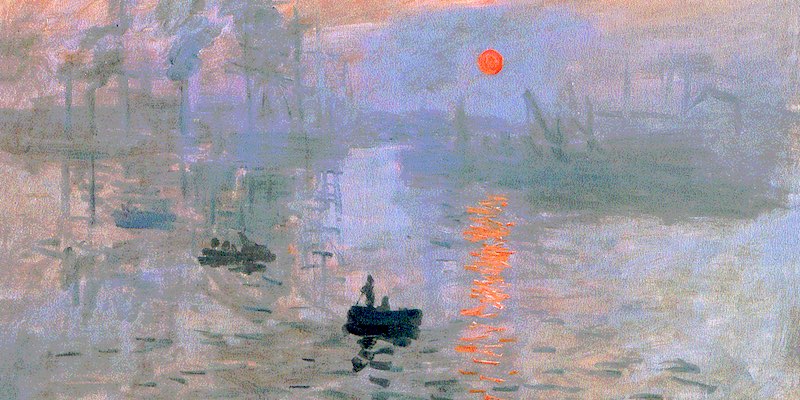 Monet's "Impression: Sunrise" at Marmatton-Monet
Monet's "Impression: Sunrise" at Marmatton-Monet
If you're a fan of Claude Monet and Impressionism, this small Paris museum is a must-see. It was Monet's son, Michel, who donated his father's collection to Musée Marmottan in 1966. The petite museum faces on to the lovely Jardin du Ranelagh, a small version of Luxembourg, set in a tranquil upscale neighborhood.
- Metro La Muette
- Website…
![]()
|
Browse our hand-picked Paris hotel deals with real-time discounts of up to 20%. Stay in the Marais, Saint Germain, the Latin Quarter, the Left Bank near the Eiffel Tower… every arrondissement is on the list. |
|
Browse our hand-picked Paris hotel deals with real-time discounts of up to 20%. Stay in the Marais, Saint Germain, the Latin Quarter, the Left Bank near the Eiffel Tower… every arrondissement is on the list. |
6. The 10 Best Hotels in the 16th
Here we present our curated list of the ten most highly-rated hotels in the 16th Arrondissement of Paris. These are the places that visitors have loved staying at and that have received our highest rankings — from "Highly Rated" right up to the top rating of "Superb-Plus".
7. Musée National des Arts Asiatiques
 At the Musée National des Arts Asiatiques
At the Musée National des Arts Asiatiques
The Guimet Museum (as it is otherwise known) boasts an unrivaled collection from Asian civilizations, with over 20,000 objects covering seven millennia of art. The Himalayan collection is a highlight but there are also collections covering China, Japan, India, Korea, Afghanistan, Southeast Asia, and Central Asia.
- 6 Place d'Îena, 75016
- Website…
8. Ride the Metro to Muette
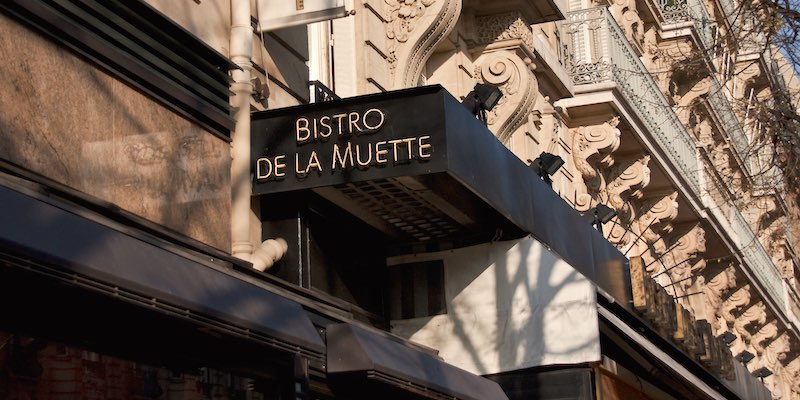 The bistro a La Muette, photo by Mark Craft
The bistro a La Muette, photo by Mark Craft
A feeling of luxury, or at least comfort, maintains and, if you want to see how the well-off Parisians live, it's worth a Metro ride to La Muette station. You'll be rewarded with an enclave of narrow streets with some of the best gourmet food shopping in Paris. It is one of the largest arrondissements since it also takes in the many hectares of the Bois de Boulogne. There are a lot of things to like here — it was difficult to keep our list down to fourteen!
![]()
|
Skip the lines and join an expert-led tour through the Musée d'Orsay — home to Van Gogh, Degas, and Monet. It’s the ultimate walk through 19th-century art in a grand old train station. |
|
Skip the lines and join an expert-led tour through the Musée d'Orsay — home to Van Gogh, Degas, and Monet. It’s the ultimate walk through 19th-century art in a grand old train station. |
9. Musée de la Marine
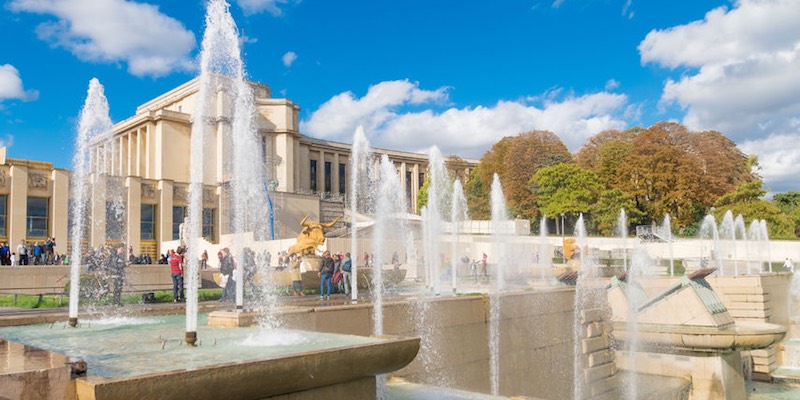 Palais de Chaillot & fountains of Trocadero
Palais de Chaillot & fountains of Trocadero
The Trocadero is more than just a pretty viewing platform. In the two curved wings stretching out from the central plaza are some interesting museums. Although we familiarly refer to the complex as "The Trocadero", the buildings are actually called Palais de Chaillot, named after the hill the complex is located atop. (And which accounts for the great view across the river.)
Musée de la Marine, the national naval museum, is the place to go for those who are curious about the history of French seafaring. There are lots of models and historic paintings but what we found most fascinating was the actual coronation barge used by Napoleon III.
10. Cité de l'Architecture et du Patrimoine
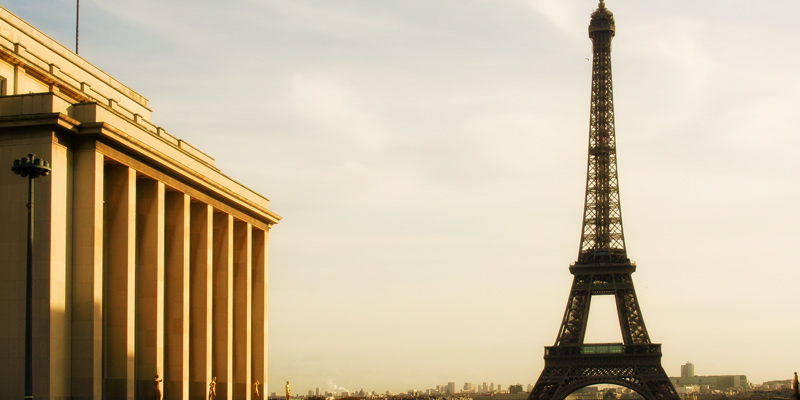 At Trocadero: Architecture et du Patrimoine and the Eiffel Tower, photo by Mark Craft.
At Trocadero: Architecture et du Patrimoine and the Eiffel Tower, photo by Mark Craft.
The name of this museum is a mouthful. However, part of the museum is, in fact, a repository for architectural details rescued from buildings that were being demolished. So, there are a lot of marble columns and reliefs and that kind of thing, out of context since the buildings they adorned are long gone. These things are the "Patrimoine" part of the museum.
What we like about this museum (or "Cité", as they have it) are the special exhibitions found on the second floor. This is the Architecture section and we've discovered so many fascinating special architectural exhibits here that it's always worth a visit. Another bonus is the magnificent view of the Eiffel Tower from the very tall second-story windows.
The architectural bookstore is one of our very favorites and we enjoy spending time (and money!) there. Off and on, there's been a small refreshment area on the main floor where it's been nice to stop for a drink and to take in the Tower views from the terrace. It's a shame their website is so lame!
![]()
|
Trade Paris bustle for royal grandeur on a guided Versailles tour. Skip the lines, wander the gardens, and peek inside Marie Antoinette’s private estate. History never looked this good. |
|
Trade Paris bustle for royal grandeur on a guided Versailles tour. Skip the lines, wander the gardens, and peek inside Marie Antoinette’s private estate. History never looked this good. |
11. CineAqua – Aquarium de Paris
Who ever thought of this concept? Cinema plus an aquarium — together at last. This modern-idea of a fish tank is located in the gardens of the Trocadero and we have always found it interesting for both children and adults. The place is huge — 3,500 square meters, all located underground, with over 500 species of marine life.
There are activities, fish petting tanks, a large projection theatre, one of those glass tunnels with water all around you, and tons and tons of fish.
12. Walk from Trocadero to Passy
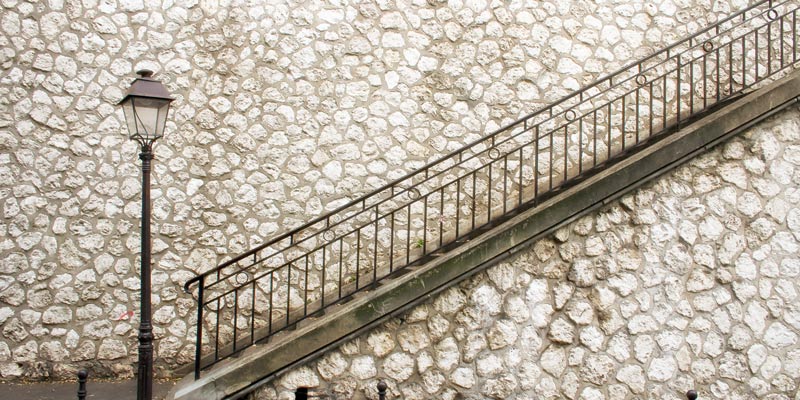 A stairway on the promenade, photo by Mark Craft
A stairway on the promenade, photo by Mark Craft
Get a real feeling for the 16th Arrondissement on this Paris Insiders Guide Promenade. Start out by admiring the morning view from the Trocadero, across to the Eiffel Tower. Find Rue Benjamin Franklin and head southwest to Place de Costa Rica, where you can admire the small place with its pedestal clock.
Cross the place and take Rue Raynouard, but look out for a doorway on your left called Rue des Eaux. Go through and take the steps down to Rue Charles Dickens. It's a fascinating narrow stairway/alley. At the bottom, if you have time, turn left and walk a few steps to Place Charles Dickens where you can visit the Musée du Vin. Otherwise, turn right on Rue Charles Dickens and pass into Parc de Passy and the pleasant housing development that surrounds it. Turn around for a moment to take in the view of the Eiffel Tower, sit down on a bench and rest for a moment.
Take the wide stairway on your right up to Avenue Marcel Proust, turn left and head southeast to find the narrow passageway called Rue Berton. This cobblestone alley takes you to Maison Balzac, the house of the famous writer, and a plaque indicating the border of the former town of Passy.
You'll find a stairway on your right (pictured above) that takes you up to Rue Raynouard again. Go right along Raynouard to Rue de l'Annonciation and turn left. Follow this to the end where it becomes a pedestrian market street. Turn right on Rue Duban, the left on Rue de Passy and walk west to La Muette, the attractive shopping area of Passy. If you started your walk at 10:00 AM, you can now have lunch at restaurant La Gare, formerly the train station serving the quartier.
13. Musée du Vin
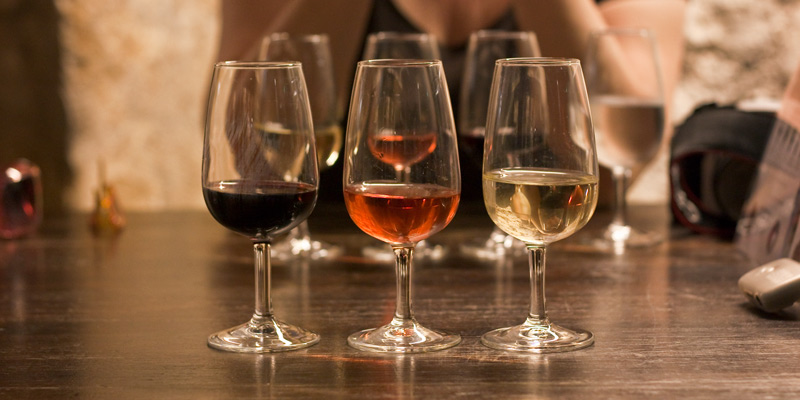 Wine tasting the the Musée du Vin, photo by Mark Craft
Wine tasting the the Musée du Vin, photo by Mark Craft
What's not to like about a museum dedicated to wine? Especially one created by the organization dedicated to the promotion and protection of French wine around the world — Le Conseil des Echansons de France. The museum is housed in the former wine cellars of the Passy Abbey, built into the high banks — sort of a cliff, really — beneath Rue Raynouard.
Filled with historical items relating to wine growing and production, we found the museum fascinating. What we liked best, though, was the flight of wine tastings we did at the end of our visit. Musée du Vin also includes a restaurant, a gift shop, and meeting facilities.
- 5 Square Charles Dickens at Rue des Eaux, 75016
- Website…
![]()
Our Top-Rated Paris Experiences
14. Bois de Boulogne
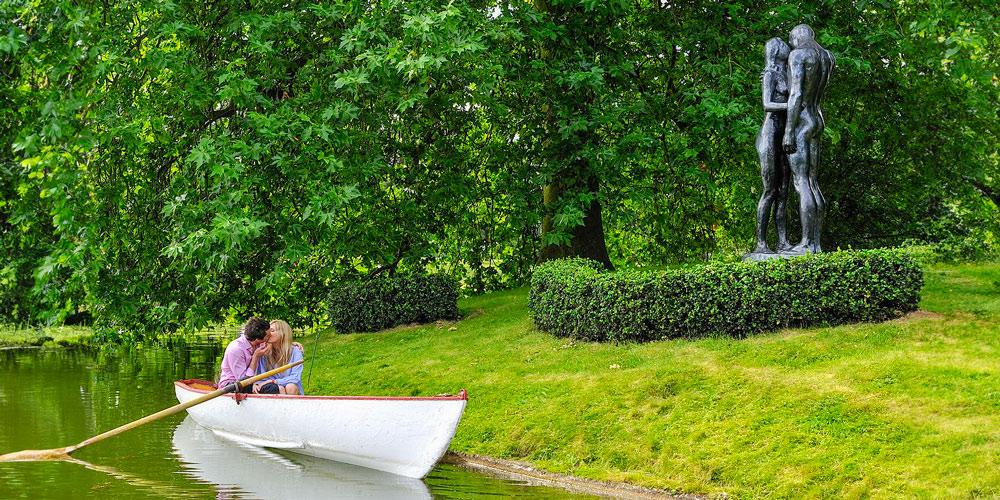 On a lake in the Bois de Boulogne, photo Wikimedia by Susanne Olovson
On a lake in the Bois de Boulogne, photo Wikimedia by Susanne Olovson
This 845-hectare wooded park is known as one of the "lungs" of Paris, because of the oxygen its forests breathe into the city. (The other "lung" is on the opposite end of Paris, Bois de Vincennes.) The bois is what's left of an ancient oak forest that was the hunting ground of French kings going back to the 7th century and Dagobert, the king of the Franks .
The current Bois de Boulogne dates to the 19th-century reign of Emperor Napoleon III, who donated the land to the city of Paris. Under Napoleon III and his urban planner, Haussmann, islands and waterfalls were created as well as tree-lined boulevards and meandering alleys.
Today, the large parkland is home to two equestrian race tracks, horse riding trials, ponds, waterfalls, hiking trials, row boats for hire, and the Roland Garros tennis complex.
15. Jardin d'Acclimatation
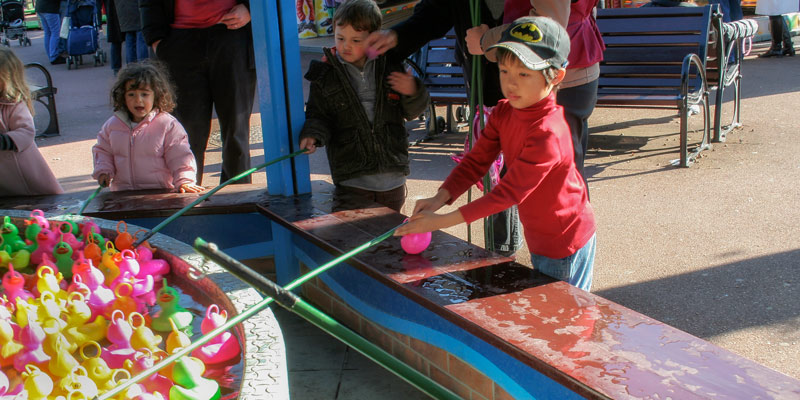 Fishing for plastic ducks at Jardin d'Acclimatation, photo by Mark Craft
Fishing for plastic ducks at Jardin d'Acclimatation, photo by Mark Craft
This 160-year-old park still retains much of the feeling of a 19th-century children's amusement park. We like the arcade area with old-fashioned fishing games, archery range, a miniature train, and a good playground. There's still a small petting zoo and, all-in-all, it's a fun afternoon outing with the kids.
In more recent decades the park has been somewhat updated. There are fairground rides, a water playground, even zip lining. A children's science museum has been added as well as the modernistic building for the Louis Vuitton Foundation, designed by Frank Gehry. Jardin d'Acclimatation is at the very north end of the Bois de Boulogne, abutting the city of Neuilly-sur-Seine.
- Metro Les Sablons, Line 1
- Website…
16. La Grande Cascade
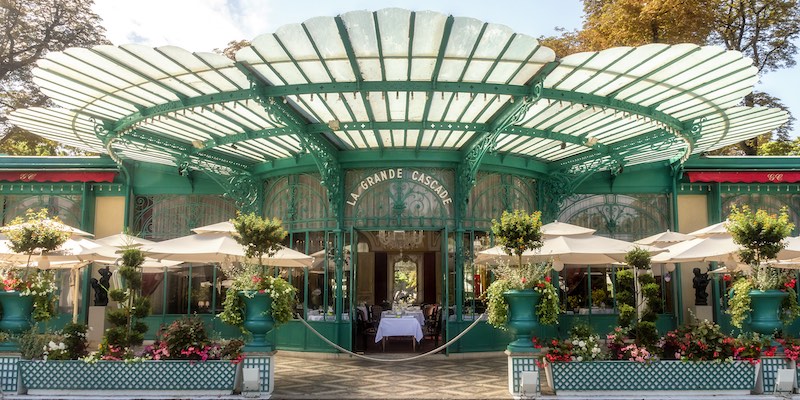 La Grande Cascade, photo by Mark Craft
La Grande Cascade, photo by Mark Craft
One of our most memorable dining (and most fun) experiences in Paris was in the Bois de Boulogne, at a restaurant that was formerly the hunting lodge of Napoleon III. La Grande Cascade is named for the waterfall it sits next to. Presiding over the kitchen of this Michelin-starred restaurant is master chef Frederic Robert — talented, distinguished, thoughtful, immaculate.
This is one of the Paris restaurants we include as "Worth a Splurge". The room is 19th-century spectacular and the veranda in the summer months is the place to be.
![]()
|
Skip the famously long lines and head straight to the top of the Eiffel Tower. With a guide to lead the way, you'll be taking in the panoramic views while everyone else is still waiting below. |
|
Skip the famously long lines and head straight to the top of the Eiffel Tower. With a guide to lead the way, you'll be taking in the panoramic views while everyone else is still waiting below. |
17. Nomicos
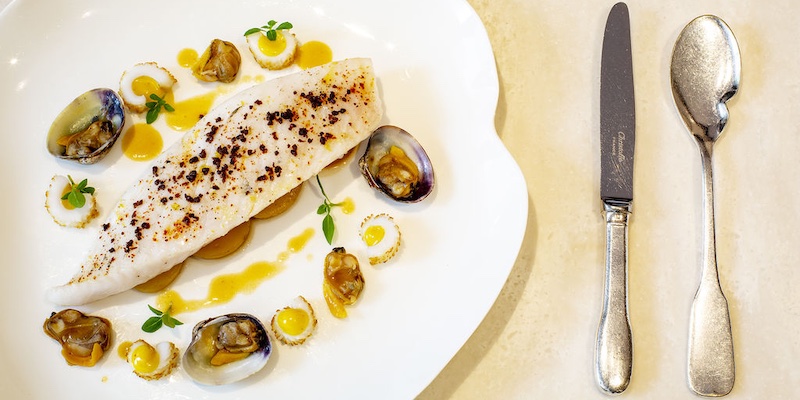
Here's another 16th Arrondissement restaurant we like, located closer to the center of the quartier. This one also has a Michelin star and it is run by the clever Chef Jean-Louis Nomicos. He is famous for having invented the world's most expensive macaroni — macaroni, truffles noires, foie gras de canard, céleri, jus de veau, parmesan gratinés. That's right, pasta stuffed with black truffles and foie gras. While many other Parisian restaurants have now copied this dish, his is still the best by far. Incidentally, Nomicos also won the Michelin star for La Grande Cascade when he was the chef there, before leaving to start his own restaurant.
18. Palais de Tokyo & Museum Of Modern Art
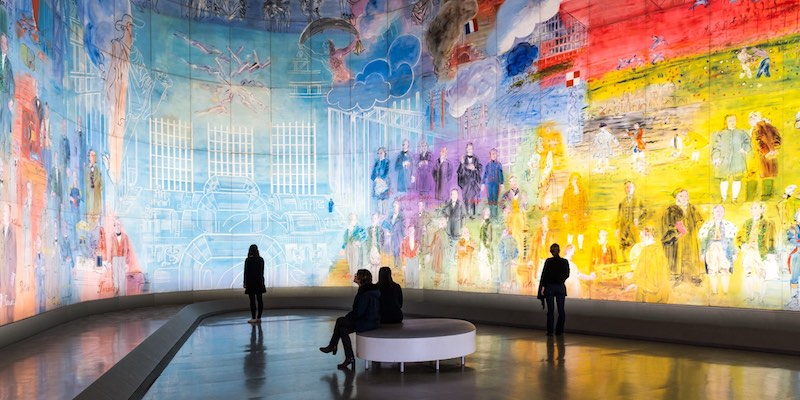 La Fée Electricité by Raoul Dufy, photo by Mark Craft
La Fée Electricité by Raoul Dufy, photo by Mark Craft
Palais de Tokyo is a grand limestone building constructed for the International Exhibition of Arts and Technology of 1937. It's now home to a couple of modern art spaces. (Appropriately, the building was initially named Palais des Musées d'Art Moderne.)
One side of the palais is given over to an experimental art space called Le Pavillon. (Today, when most people mention "Palais de Tokyo" they're referring to this space.) There are no permanent exhibits, just artist work space and special shows curated by various art people. There's always something to see there, but it can be a bit… puzzling. Now that we've shown that we're philistines, we'll tell you about the other half of the building, which we do like.
Musée d'Art Moderne de la Ville de Paris (referred to as MAM) is, as you can guess, the modern art museum of the city of Paris. There is some great stuff to be seen in here, and the museum is free. You can see Modigliani's The Woman With Blue Eyes, Robert Delaunay's wonderful La Ville de Paris, and other works by giants of modern art like Picasso, Braque, Calder, Keith Haring, Pierre Bonnard.
What you won't see are Picasso's Le Pigeon Aux Petits Pois , Modigliani's Woman with a Fan, or Fernand Leger's Still Life with Candlestick. That's because these are three of the five paintings that were stolen on May 20, 2010. Given the value of these paintings (well over €100 million) it's been called the "heist of the century". As soon as the theft was discovered the museum reacted in calm, rational way — it closed its doors for years. Luckily, it's now open again and better than ever… hopefully with an improved alarm system.
![]()
|
Escape to the Land of Bubbly on a small-group day tour from Paris. Taste at top Champagne houses, meet boutique producers, enjoy a leisurely lunch, and toast to a perfectly sparkling day. |
|
Escape to the Land of Bubbly on a small-group day tour from Paris. Taste at top Champagne houses, meet boutique producers, enjoy a leisurely lunch, and toast to a perfectly sparkling day. |
The Best Markets in the 16th Arrondissement
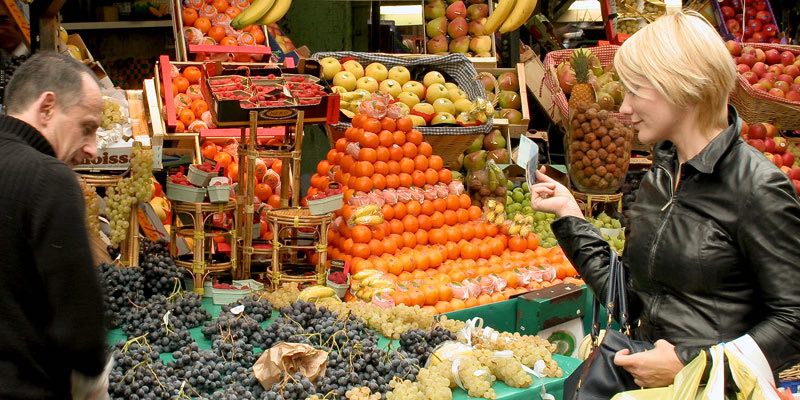 At the market, photo by Mark Craft
At the market, photo by Mark Craft
- RUE DE L'ANNONCIATION
Pedestrian market street off Rue de Passy near La Muette
Most stores open daily except Sunday - PASSY COVERED MARKET
Place de Passy
Daily 8:00 AM to 7:00 PM.; Sunday 8:00 AM to 1:00 PM - AMIRAL BRUIX
Boulevard de l'Amiral-Bruix, between Weber and Marbeau
Wednesday & Saturday 7:00 AM to 2:30 PM - PRESIDENT WILSON
Avenue du President-Wilson, between Debrousse and Place d'Iena
Wednesday 7:00 AM to 2:30 PM; Saturday 7:00 AM to 3:00 PM - SAINT-DIDIER
Corner of rue Mesnil and rue Saint-Didier
Indoor market Tuesday to Saturday 8:00 AM to 1:30 PM Outdoor market Monday to Friday 8:00 AM to 7:30 PM; Saturday to 1:30 PM
16th Arrondissement Resources
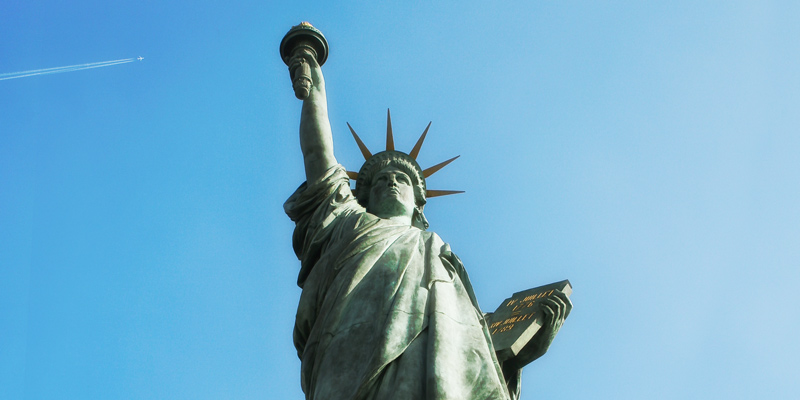 The Statue of Liberty on Pont de Grenelle, photo by Mark Craft
The Statue of Liberty on Pont de Grenelle, photo by Mark Craft
The 16th Arrondissement offers a glimpse into a quieter, more refined side of Paris, where wide boulevards and elegant townhouses gives the visitor a sense of timeless sophistication. It's a place where Parisians go to escape the bustle of the city, without sacrificing beauty or charm. From the stunning views of the Eiffel Tower at Trocadéro to wandering the serene pathways of the Bois de Boulogne, the 16th provides a tranquil, luxurious backdrop to your Parisian adventure.
But don't let the calm fool you — this quartier is full of cultural treasures. Museums like the Musée Marmottan Monet and the Palais de Tokyo offer world-class art, while Michelin-starred restaurants and chic cafés ensure that every dining experience is as memorable as the surroundings. The 16th may not be as busy as other parts of Paris, but it embodies what we think of as the city's essence — an elegant blend of history, culture, and understated luxury. It's a perfect spot for those looking to explore Paris at a slower, more sophisticated pace.
- Metro Line 9 runs along the "spine" of the 16th Arrondissement, starting at station Franklin D Roosevelt in the 8th all the way out to the last station at Pont de Sevres.
- Metro Line 6 cuts a little arc through the 16th from Etoile to Passy. Line 10 ends at Boulogne-St-Cloud in the east after making a few stops in the lower part of the arrondissement.
- We forgot to mention the Statue of Liberty found in the middle of Pont de Grenelle.
- The Aerodynamic Laboratory of Gustave Eiffel. Amazingly, this laboratory and wind tunnel is still operating after more than 100 years. It's found at 67 Rue Boileau. It can only be visited in pre-arranged groups on Saturdays and Sundays – you must call in advance. 01 42 88 47 40.
- Castel Béranger, designed in 1897 by the then-unknown Hector Guimard (later famous for his iron Metro entrances) can be seen at 34 Rue La Fontaine.
- The last operating artesian well in Paris is located at Square Lamartine.
- An obelisk to Benjamin Franklin commemorates the place he installed the first lighting conductor, or lightning rod, in France. 66 Rue Raynouard at Rue Singer.
Paris Planning Guides
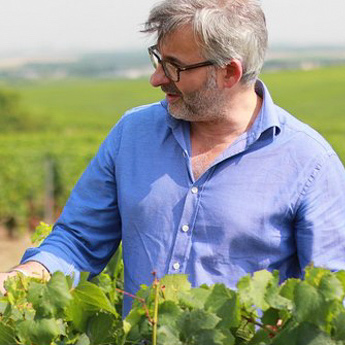 VIP to Champagne
VIP to Champagne |
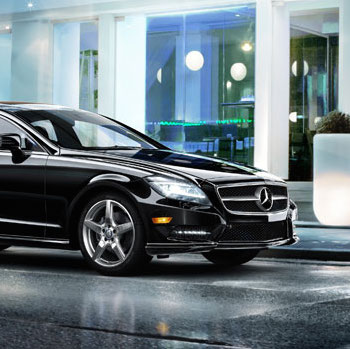 Book an Airport Transfer
Book an Airport Transfer |
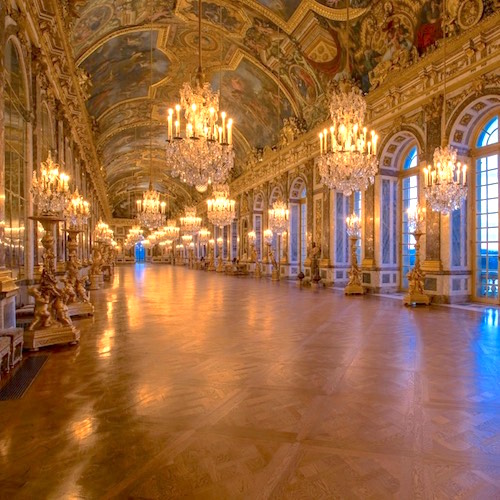 Visiting Versailles
Visiting Versailles |
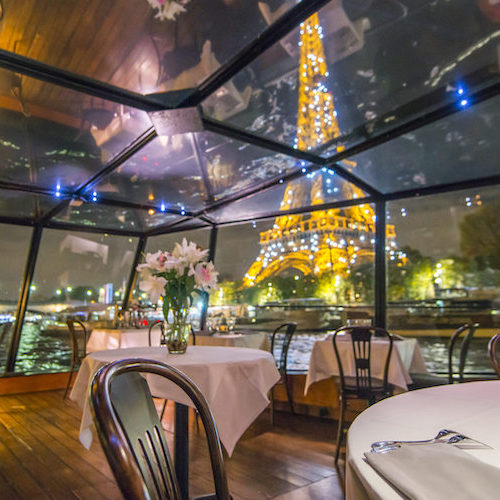 Glorious Dinner Cruises
Glorious Dinner Cruises |
